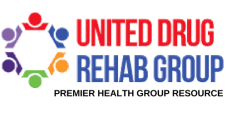Ways to Manage Chronic Pain Without Risking Addiction
Each year, over 100 million Americans suffer from some form of chronic pain, whether it be from something they’ve had diagnosed, or from an unknown cause. Chronic pain can range from slight discomfort to overwhelming pain which limits a person’s functionality throughout the day, and one of the only ways Americans know how to address the issue is with painkillers and other drugs which distract them from the pain, or numb it entirely. Some resort to sleep medications, as the painkillers provide no relief and the only escape from the pain is sleep. However, there are a number of ways those suffering from chronic pain can treat themselves, without risking addiction or taking dangerous drugs that may have harmful side effects.
Lifestyle Changes to Treat Chronic Pain
While making changes to your daily life may not seem like an effective way to treat overwhelming chronic pain, there are a number of changes that can be made to your day-to-day routine that will have you feeling better over time. For example, a popular way to combat chronic pain is eating an appropriate diet; this is particularly helpful for those suffering from autoimmune disorders which have no known treatment options. Some have reported curing themselves of their conditions altogether by eating an organic, well-balanced diet that suits their nutritional needs. This should be used in combination with proper exercise, as exercising properly can make a significant impact on the amount of pain you may be feeling. It may be hard to get motivated for a run or a workout, however a simple walk through a nature trail should be enough to distract you from the pain and release hormones which will make you feel better overall.
You may be skeptical that eating a proper diet and exercising will treat chronic pain as well as pain killers can, however there are a number of other ways you can treat chronic pain without resorting to addictive drugs. One of the most popular is meditation, as those who practice it claim that it allows them to feel better connected to their body, which in turn eases their chronic pain. In addition, acupuncture has been reported to treat chronic pain very effectively in those who use it as a method of treatment.
Non-Addictive Medications to Treat Chronic Pain
While there are a number of highly-addictive painkillers on the market targeted at sufferers of chronic pain, there are also medications which are not addictive that can treat as effectively as those which are. One popular type of medication among sufferers of chronic pain is anti-inflammatory medication, which can help ease pain all over the body, particularly in your joints. Others find that simple painkillers such as Aspirin do an excellent job of easing the pain to a point where it can be managed through other methods, such as those listed in above. You should consult your doctor about your options for treatment, as he or she will have information to share about what may work best for your needs.
Breaking Free from Addictive Painkillers
Unfortunately, many sufferers of chronic pain have already fallen victim to the marketing ploys of the drug industry, and have found themselves addicted to dangerous substances which further deteriorate their quality of life. Luckily, there are several ways those currently addicted to painkillers can get help. If you believe you may be addicted to painkillers of some kind, visit your local drug rehab center to learn about the addiction treatment options they offer. It’s important to be honest with yourself about the state of your addiction, as lying to yourself or others will do you no benefits in the long run. By understanding that you are dependent on painkillers, you can start your journey to leading a more fulfilled, pain-free life. If you’re ready to get help today, all United Drug Rehab Group. We are ready and waiting to speak with you.


